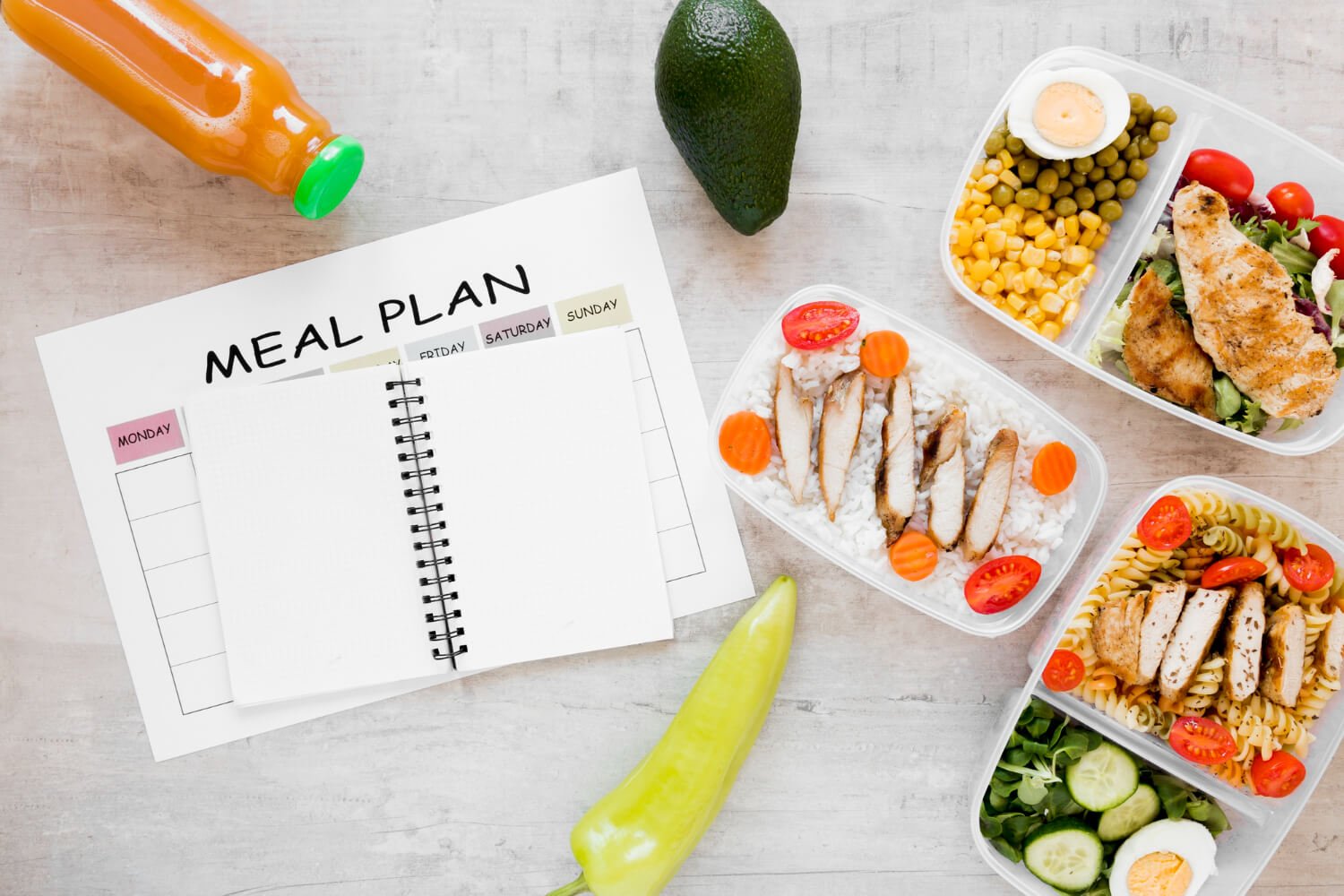How to Get Enough Protein While Intermittent Fasting

Welcome, health enthusiasts! I’m delighted that you’ve chosen to join me today in discussing a topic I’m both passionate about and well-versed in: How to get enough protein while practicing intermittent fasting.
If you’re here, chances are, you’re someone who appreciates the benefits of intermittent fasting – a practice that, when done correctly, can have tremendous positive effects on our overall health.
But like any dietary regimen, it comes with its unique challenges, doesn’t it? One of the most common ones I’ve heard from people is: “How do I make sure I’m getting enough protein when my eating window is so limited?”
Sounds familiar? Don’t worry, you’re not alone, and the good news is, there are efficient and effective ways to ensure you’re meeting your protein needs while sticking to your fasting schedule.
In this blog post, we’ll explore the intricate relationship between intermittent fasting and protein intake. We’ll delve into why protein is so important for your body, especially when you’re fasting, and how intermittent fasting can affect your protein intake.
We’ll also provide practical advice on calculating your protein needs, choosing high-protein foods, and designing a high-protein meal plan that fits your fasting routine. Plus, you’ll get useful tips on maximizing protein absorption and utilization during your fasting hours.
Whether you’re new to intermittent fasting or you’re an experienced faster looking to optimize your diet, this guide is designed with you in mind.
The aim is to provide clear, easy-to-understand, and actionable information that will empower you to nourish your body properly while enjoying the benefits of intermittent fasting.
Remember, everyone’s body and dietary needs are different, and while I’ll do my best to offer general guidance, it’s always a good idea to consult with a healthcare provider for personalized advice.
Ready to dive in? Let’s get started on this protein-packed journey!
Understanding Intermittent Fasting and Its Impact on Protein Intake

What is Intermittent Fasting?
Intermittent fasting, in simple terms, is an eating pattern where you cycle between periods of eating and fasting. It’s not so much about what you eat, but more about when you eat.
Now, there are several different intermittent fasting methods, each with a different fasting and eating window, but the core idea remains the same – have set times for when you eat and when you don’t.
Importance of Protein in the Body
Let’s talk protein. Why is it so important? Well, protein plays a starring role in many bodily functions.
It’s like the building block for our cells, involved in everything from muscle repair and growth to the production of enzymes and hormones. Simply put, it’s crucial to our overall health and well-being.
How Intermittent Fasting Can Affect Protein Intake
Here’s where it gets a little tricky. With a condensed eating window during intermittent fasting, you might find it challenging to consume the same amount of protein that you would typically eat throughout a whole day.
This is especially true if you’re used to eating small amounts of protein throughout the day rather than in larger amounts in one sitting.
The Challenges of Getting Enough Protein While Fasting
The main challenge? Fitting all that protein into your eating window without feeling overstuffed or resorting to unhealthy, protein-dense foods.
But fear not, as we journey together through this post, I’ll provide some neat tips and tricks to help you meet your protein goals.
Read Also: Unlock Ways to Get Enough Protein Without Protein Powder
Why Proper Protein Intake is Crucial During Intermittent Fasting

The Role of Protein in Muscle Preservation
You may already know this, but it’s worth repeating: protein is essential for muscle preservation. When we’re fasting, our bodies need enough protein to maintain muscle mass.
Without it, we risk losing muscle along with fat when we shed pounds, and that’s not a trade-off we want to make!
The Impact of Protein on Metabolism and Weight Loss
Did you know that protein has a higher thermic effect than fats or carbs? This means your body burns more calories to digest protein.
So, a high-protein diet can give your metabolism a slight boost, helping with weight loss, which is often one of the goals of intermittent fasting.
Balancing Protein and Calorie Intake during the Eating Window
While it’s crucial to get enough protein, we must remember that calories still count. It’s important to balance your protein intake with your overall caloric needs.
We want to focus on nutrient-dense, high-protein foods that will satisfy both our protein and energy needs without going overboard on calories.
Read Also: How to Improve Your Gut Health After Antibiotics
Calculating Your Protein Needs While Intermittent Fasting

Factors Influencing Protein Needs
How much protein should you consume while intermittent fasting? The answer isn’t a one-size-fits-all because our protein needs depend on various factors.
Your age, gender, weight, physical activity level, and overall health all play a part. Generally, an active person needs more protein than a sedentary one, and someone aiming to build muscle will need even more.
How to Calculate Your Daily Protein Requirement
As a general guideline, the Dietary Reference Intake (DRI) suggests that most adults get around 0.8 grams of protein per kilogram of body weight each day.
If you’re more active or working on muscle building, you may need up to 1.6 grams per kilogram. But remember, this is just a starting point. Always listen to your body and adjust accordingly.
Here’s a simple calculation:
Let’s say you weigh 70 kilograms and you’re moderately active. Your protein needs could be anywhere from 56 grams (0.8 x 70) to 112 grams (1.6 x 70) per day.
Adjusting Protein Intake Based on Fasting Schedule
Now, when you’re intermittent fasting, you have a condensed eating window. So, it’s all about getting your required protein within that timeframe. This might mean larger servings of protein in each meal or incorporating high-protein snacks.
Read Also: Unlocking a Healthy Pregnancy: Essential Tips for Nutritious Eating
High-Protein Foods to Include in Your Intermittent Fasting Plan
Once you know your protein needs, the next step is figuring out which foods can help you meet those needs. Here are some of the best high-protein foods to include in your diet:
Lean Meats and Poultry
Chicken breast, turkey, lean cuts of beef, and pork are all excellent sources of protein. They’re versatile, delicious, and can be incorporated into a variety of meals.
Fish and Seafood
Fish like salmon, tuna, and shrimp are not just high in protein but also provide heart-healthy omega-3 fatty acids.
Plant-based Protein Sources
Not a meat-eater? No worries! There are plenty of plant-based proteins too. Lentils, chickpeas, black beans, quinoa, tofu, and tempeh are great choices.
Protein Supplements: When and How to Use Them
Sometimes, despite our best efforts, getting all our protein from whole foods can be challenging. This is where protein supplements, like protein powders, can come in handy.
They can be easily added to smoothies, yogurt, or oatmeal for a protein boost. But remember, they should supplement a balanced diet, not replace whole foods.
Creating a High-Protein Meal Plan for Intermittent Fasting

Crafting a high-protein meal plan for your intermittent fasting routine might seem like a daunting task.
But once you understand your protein needs and have your go-to high-protein foods, it becomes more of an exciting culinary adventure. Let’s break it down:
Understanding Your Eating Window
First things first: know your eating window. Whether you’re following a 16/8, 18/6, or any other intermittent fasting pattern, understanding when you’re supposed to eat is crucial.
Meal and Snack Planning
Next, based on your eating window, plan your meals and potential snacks. If you have an 8-hour eating window, for instance, you might opt for two main meals and a couple of high-protein snacks in between.
Diversify Your Protein Sources
To prevent mealtime monotony and ensure a balance of nutrients, vary your protein sources. Mix it up between animal-based proteins like lean meats, poultry, and fish, and plant-based options like beans, lentils, and tofu.
Pair Protein with Fiber and Healthy Fats
Remember, a healthy meal is a balanced meal. Alongside protein, be sure to include fiber-rich veggies and fruits, and heart-healthy fats in your meal plan.
This combination will not only keep you satiated longer but also provide a broader range of nutrients.
Possible Risks and Considerations of High-Protein Intermittent Fasting
While a high-protein intermittent fasting plan can be highly beneficial for many people, there are a few things you should keep in mind:
Potential for Overeating
With a limited eating window and a focus on high-protein foods, there’s a risk of overeating as you try to meet your protein goals.
It’s important to listen to your body’s hunger and fullness cues, and not force yourself to eat beyond your comfort.
Nutritional Imbalance
A diet that overly focuses on protein at the expense of other nutrients could lead to a nutritional imbalance. While protein is important, our bodies also need carbohydrates, fats, vitamins, and minerals to function properly.
Kidney Health
If you have existing kidney problems, a high-protein diet may not be suitable for you. Always consult with a healthcare provider before making significant changes to your diet.
Individual Variability
Lastly, remember that everyone’s body responds differently to dietary changes. What works for one person may not work for another. Always listen to your body and adjust your diet and fasting regimen as necessary.
Read Also: Top Essential Vitamins and Minerals for Pregnancy You Must Know
Maximizing Protein Absorption During Your Eating Window
It’s not just about how much protein you consume but also about how well your body absorbs it. Here are some ways to maximize protein absorption during your eating window:
Spread Your Protein Intake
Our bodies can only utilize a certain amount of protein at one time. It’s been suggested that for optimal protein synthesis, one should aim for 20-30 grams of protein per meal.
So, instead of consuming all your protein in one meal, try to distribute it throughout your eating window.
Pair Protein with Other Nutrients
Pairing protein with other nutrients, particularly carbohydrates, can help enhance absorption. Carbs not only provide energy but also help spare protein for its primary tasks in the body, rather than being used up for energy.
Stay Hydrated
Good hydration aids digestion and nutrient absorption in general, including protein. Remember to drink adequate water during your eating window, but be mindful not to gulp down large volumes right before meals, as this can fill your stomach and reduce your appetite.
Mindful Eating
Slowing down and chewing your food properly can help improve digestion and absorption of all nutrients, protein included. Plus, mindful eating helps you better recognize your hunger and fullness cues, enhancing the overall eating experience.
Read Also: Addressing Common Nutrient Deficiencies: A Path to Optimal Health
Read Also: Proactive Measures: A Guide to Preventing Chronic Diseases
Conclusion
Integrating a high-protein diet into your intermittent fasting schedule might seem complex, but with some understanding and planning, it’s entirely feasible.
From knowing why protein matters and how much you need, to choosing your high-protein foods and creating a balanced meal plan, you’re now equipped to navigate this journey.
Remember, while our focus here is protein, achieving a nutrient-rich, balanced diet is crucial. Pair your proteins with a colorful variety of fruits, veggies, whole grains, and healthy fats. And above all, listen to your body. It’s your best guide.
When done correctly, a high-protein intermittent fasting regimen can not only support your health and fitness goals but also contribute to an overall balanced lifestyle.
But, as with any diet plan, individual experiences can vary, and it’s essential to consult a healthcare provider or nutritionist to ensure it’s the right path for you.
Embrace the process, enjoy your meals, and remember—your health is a journey, not a destination.
FAQs
How much protein do I need while intermittent fasting?
The amount of protein you need depends on various factors like your age, weight, gender, and activity level. Generally, most adults need around 0.8 to 1.6 grams of protein per kilogram of body weight per day.
Can I get enough protein during my eating window while fasting?
Yes, it’s entirely possible to meet your protein needs during your eating window. It may involve larger protein servings at each meal or incorporating high-protein snacks.
What are some high-protein foods to include in my diet while fasting?
Lean meats, poultry, fish, and seafood are great animal-based proteins. For plant-based proteins, consider foods like lentils, chickpeas, black beans, quinoa, tofu, and tempeh.
How can I create a high-protein meal plan for intermittent fasting?
Know your eating window, plan your meals and snacks, diversify your protein sources, and remember to pair protein with fiber-rich foods and healthy fats for balanced meals.
Are there any risks of a high-protein diet with intermittent fasting?
Potential risks include overeating, nutritional imbalance, and, for those with existing kidney problems, possibly worsening their condition. Remember that everyone’s body responds differently, so it’s essential to listen to your body and adjust as necessary.
How can I maximize protein absorption while intermittent fasting?
Spread your protein intake throughout your eating window, pair protein with other nutrients like carbs, stay hydrated, and practice mindful eating to improve digestion and nutrient absorption.
Should I consult a healthcare provider before starting a high-protein intermittent fasting regimen?
Absolutely! Before making significant changes to your diet, it’s always a good idea to consult with a healthcare provider or nutritionist to ensure it’s suitable for your specific needs and health conditions.




